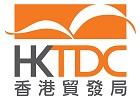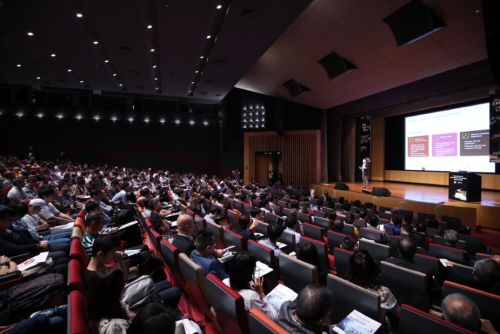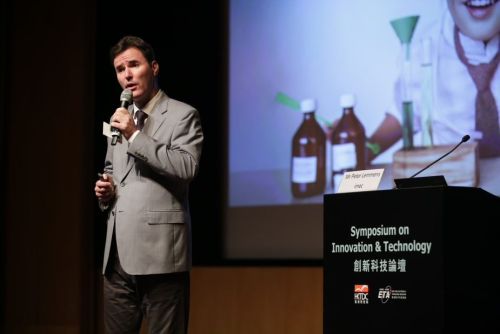|
| Tuesday, 15 October 2019, 20:00 HKT/SGT | |
| |  | |
Source: HKTDC | |
|
|
|
|
| Experts discuss prospects for 5G adoption in Hong Kong |
HONG KONG, Oct 15, 2019 - (ACN Newswire) - Is there any hotter buzzword in technology right now than "5G"? The fifth generation of high-speed mobile data is set to disrupt industries across the board - a technological revolution that will change the way we think and act in our everyday lives.
 | | The symposium titled "Intelligent Connectivity: 5G and Beyond", gathered industry experts from several major technology companies - including ASTRI, China Mobile Hong Kong, Google, HKT, imec, KeySight Technologies, Nokia, NVIDIA and PwC - to discuss the boundless opportunities presented by 5G commercialisation. |
 | | Nicholas Yang, Secretary for Innovation and Technology of the Hong Kong Special Administrative Region (HKSAR), gave the opening remarks at the symposium. |
 | | Peter Lemmens, Director of imec Innovation Services |
"Intelligent Connectivity: 5G and Beyond", a symposium that ran on 14 October, discussed the boundless opportunities presented by 5G commercialisation as part of the HKTDC Hong Kong Electronics Fair (Autumn Edition). The fair runs concurrently with electronicAsia until 16 October at the Hong Kong Convention and Exhibition Centre, attracting more than 4,300 exhibitors from 23 countries and regions to showcase the world's leading innovative electronics products.
Changing how cities work
Peter Lemmens, Director of imec Innovation Services, provided a compelling example of how 5G was used to help an entire region of Belgium with nearly 6.5 million inhabitants revolutionise their water system.
"[Our] solution in Belgium was a massive deployment of very tiny sensors that can measure pH and chlorides in water, that you connect to an app on a mobile phone to monitor water quality in real-time," said Lemmens, explaining that the large-scale wireless sensor network pushed by 5G now maps water reserves covering 13,522 square kilometres across the whole of Belgium.
He said the design and development of innovative sensor systems has garnered lots of attention in the scientific community because of the scope and speed capabilities enabled by 5G technologies. He believed it would inspire more Internet of Things (IoT) applications and enable innovative product development with a realistic time-to-market.
Safer drivers, safer roads
Another much lauded use of 5G is its application in smarter transport systems and for autonomous driving, providing the extremely high processing speed that can match a human operator, as well as the low latency and connectivity that can enable a new generation of applications that have not been seen before.
Ho Kai-leung, Strategic Wireless Technology and Project Officer at Hong Kong Telecommunications (HKT), said although he did not expect self-driving cars to hit Hong Kong's roads for at least another five years, they are unlocking the potential of 5G by developing intelligent transport systems that can keep drivers alert to enable a safer driving experience.
Mr Ho added that this is good news for the industry locally as the Hong Kong Science and Technology Research Institute received approval earlier this year from the Transport Department of the Hong Kong Special Administrative Region to hold autonomous driving vehicle trials for 5G research purposes - making it a more tangible possibility than ever before.
What will 6G bring?
In 2019, the 5G rollout is happening in several leading markets and the global momentum is beginning to build. Michael Chang, CTO, Customers Operations, Greater China at Nokia Networks, said he expected that more overwhelming capabilities will exist over the horizon, and explored possibilities of what a 6G network might look like.
"We've digitised the physical world; we connect machine things together," he said. "But there's one element we have not digitised: it's the biological world. How about our feelings, our emotions? Our emotions can be digitised and uploaded to the cloud."
Mr Chang described the development of "wetware systems," a term used to describe systems where human brain cells or thought processes are analogous to computer systems. Giving credence to the idea that this could be the next wave of game-changing innovation, Mr Cheng cited the example of technology entrepreneur Elon Musk, whose company Neuralink has been quietly working on a brain-machine interface with the ultimate goal of implanting devices in paralysed humans to enable them to control phones or computers.
Photo download: https://bit.ly/2MFAhLH
Contact:
Natalie Wong, Tel: +852 2584 4472, Email: natalie.hy.wong@hktdc.org
Kaya Lam, Tel: +852 2584 4525, Email: kaya.kh.lam@hktdc.org
Topic: Press release summary
Source: HKTDC
Sectors: Electronics, Construct, Engineering
https://www.acnnewswire.com
From the Asia Corporate News Network
Copyright © 2024 ACN Newswire. All rights reserved. A division of Asia Corporate News Network.
|
|
|
|

|
|
|
|